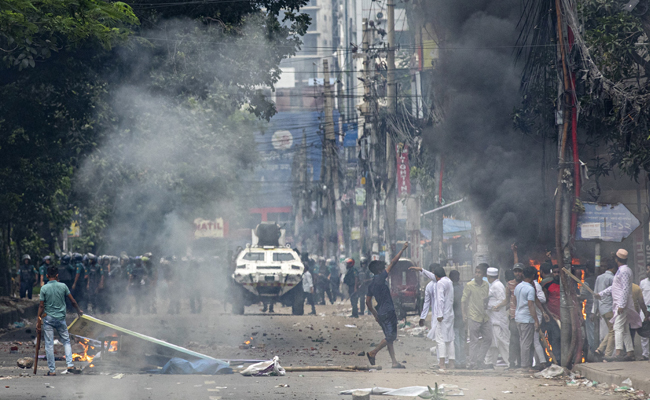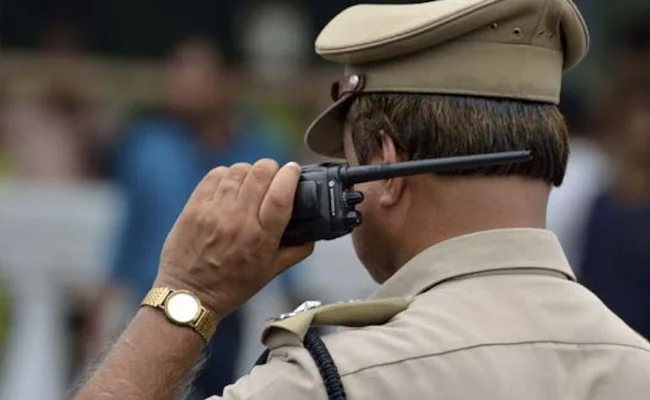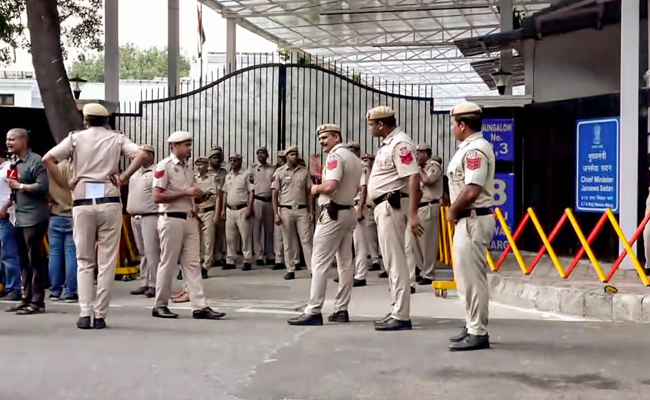Dhaka (AP): Bangladesh's top court on Sunday scaled back a controversial quota system for government job applicants, in a partial victory for student protesters after days of nationwide unrest and deadly clashes between police and demonstrators that have killed scores of people.
Students, frustrated by shortages of good jobs, have been demanding an end to a quota that reserved 30% of government jobs for relatives of veterans who fought in Bangladesh's war of independence in 1971. The government previously halted it in 2018 following mass student protests, but in June, Bangladesh's High Court reinstated the quotas and set off a new round of protests.
Ruling on an appeal, the Supreme Court ordered that the veterans' quota be cut to 5%, with 93% of jobs to be allocated on merit. The remaining 2% will be set aside for members of ethnic minorities and transgender and disabled people.
The protests have posed the most serious challenge to Bangladesh's government since Prime Minister Sheikh Hasina won a fourth consecutive term in January elections that were boycotted by the main opposition groups. Universities have been closed, the internet has been shut off and the government has ordered people to stay at home.
The protests turned deadly on Tuesday, a day after students at Dhaka University began clashing with police. Violence continued to escalate as police fired tear gas and rubber bullets and hurled smoke grenades to scatter stone-throwing protesters. Bangladeshi authorities haven't shared any official numbers of those killed and injured, but the Daily Prothom Alo newspaper reported Saturday that at least 103 people have died so far.
Sporadic clashes in some parts of Dhaka, the capital, were reported on Saturday but it was not immediately clear whether there were any fatalities.
Ahead of the Supreme Court hearing, soldiers patrolled cities across the South Asian country. Home Minister Asaduzzaman Khan said the stay at home order will be relaxed from 3 p.m. to 5 p.m. on Sunday for people to run essential errands.
Meanwhile, the government has declared Sunday and Monday as public holidays, with only emergency services allowed to operate.
Protesters argue the quota system is discriminatory and benefits supporters of Hasina, whose Awami League party led the independence movement, saying it should be replaced with a merit-based system. Hasina has defended the quota system, saying that veterans deserve the highest respect for their contributions in the war against Pakistan, regardless of their political affiliation.
Representatives from both sides met late Friday in an attempt to reach a resolution and Law Minister Anisul Huq said the government was open to discussing their demands. Their demands included the reform of the current quota system, the reopening of student dormitories shut by the police following the clashes and for some university officials to step down after failing to protect campuses from the violence.
The main opposition Bangladesh Nationalist Party has backed the protests, vowing to organize its own demonstrations as many of its supporters have joined the student-led protests. However, BNP said in a statement its followers were not responsible for the violence and denied the ruling party's accusations of using the protests for political gains.
The Awami League and the BNP have often accused each other of fueling political chaos and violence, most recently ahead of the country's national election, which was marred by a crackdown on several opposition figures. Hasina's government had accused the opposition party of attempting to disrupt the vote.
Let the Truth be known. If you read VB and like VB, please be a VB Supporter and Help us deliver the Truth to one and all.
Mangaluru: A police constable attached to the Vitla Police Station has been arrested for allegedly forging documents and manipulating passport verification records to obtain a clearance certificate from the authorities.
Police said on Tuesday that a person identified as Shakti Das, who claimed to be residing within the jurisdiction of the Vitla Police Station, first applied for a passport in February 2025.
During police verification, it was found that the address mentioned in the application did not match official records, following which the application was not recommended.
In June 2025, Shakti Das reportedly submitted a second passport application. Police alleged that Pradeep, a staff member at the Vitla Police Station, processed the reapplication without informing the concerned beat constable, Sabu Mirji, who was responsible for verifying the applicant’s address.
Pradeep allegedly prepared a verification report in the name of the beat constable, forged his signature, secured approval from senior officers, and forwarded the report. He is also accused of destroying verification-related documents to conceal the irregularities.
As per the report, the matter came to light on December 19 during a scrutiny of records. Police said the acts amounted to criminal breach of trust, as a crucial identity document issued by the Central government was fraudulently obtained.
Police further said that Shakti Das claims to hail from West Bengal, and his address is currently being verified.
Based on the findings, Vitla Police have registered a case against Pradeep and passport holder Shakti Das under Sections 336, 337, 316(5), and 238 of the Bharatiya Nyaya Sanhita (BNS), 2023.
Pradeep has been arrested and produced before a court, which remanded him to judicial custody. Further investigation is underway, police said.





